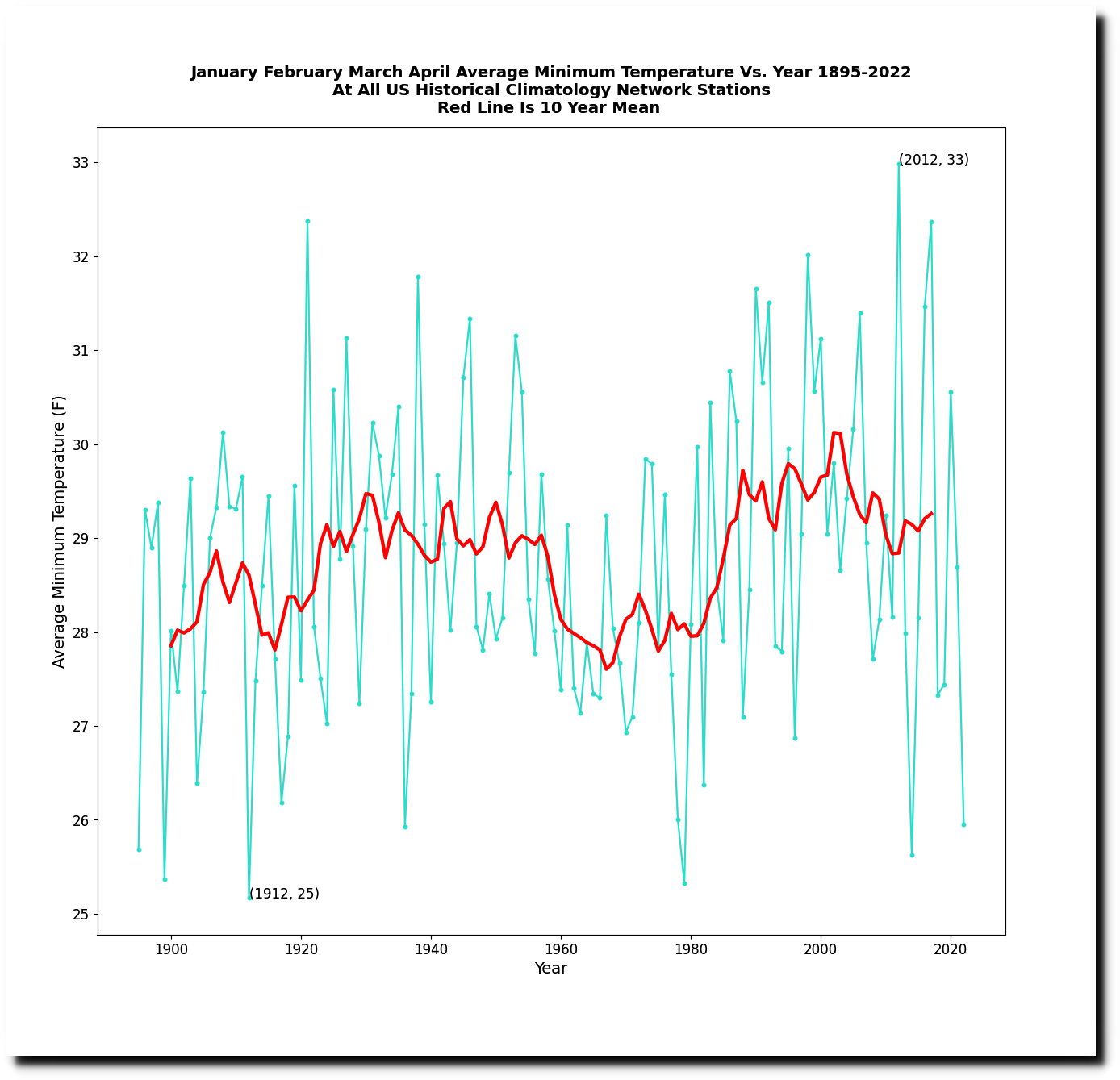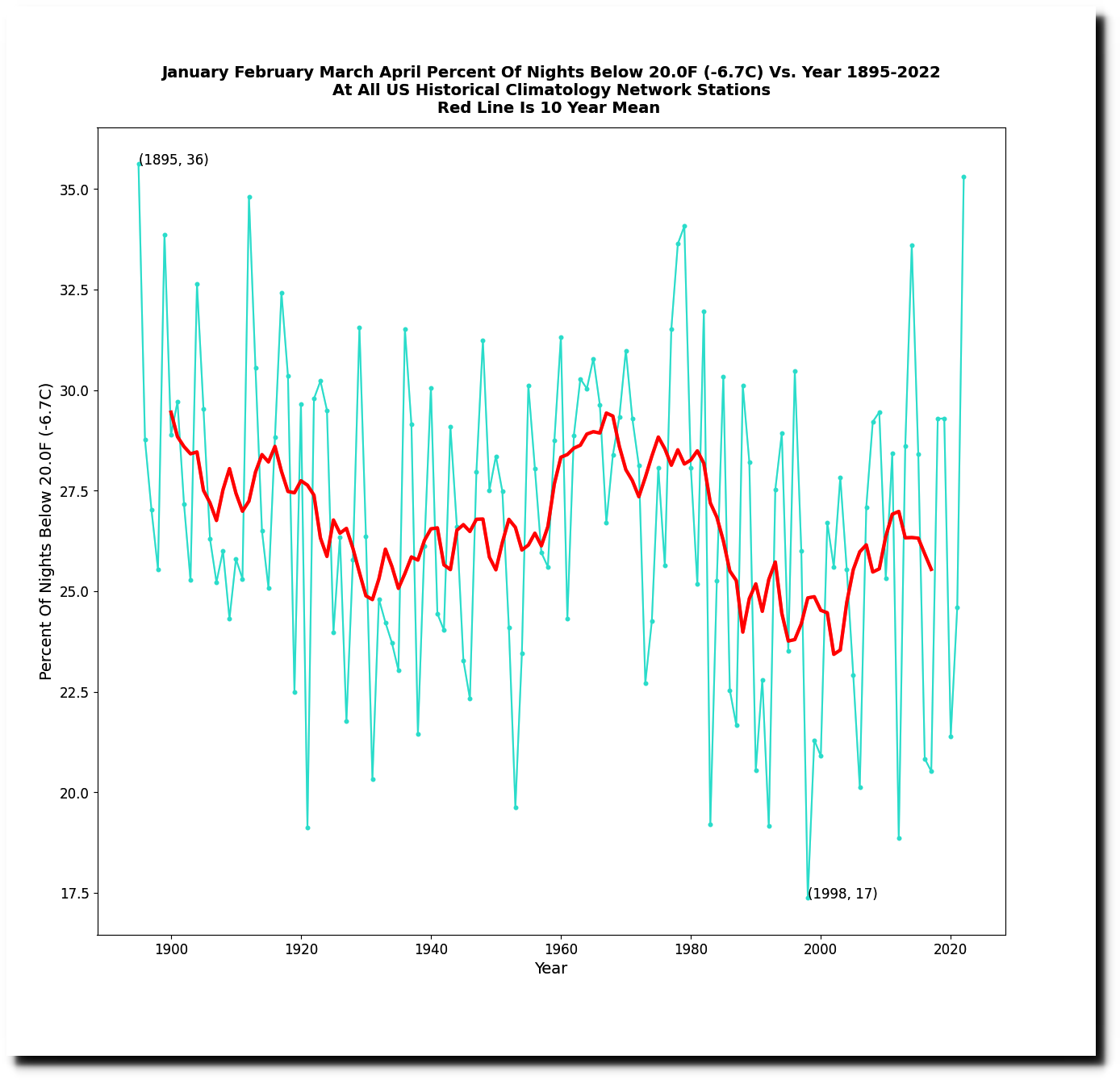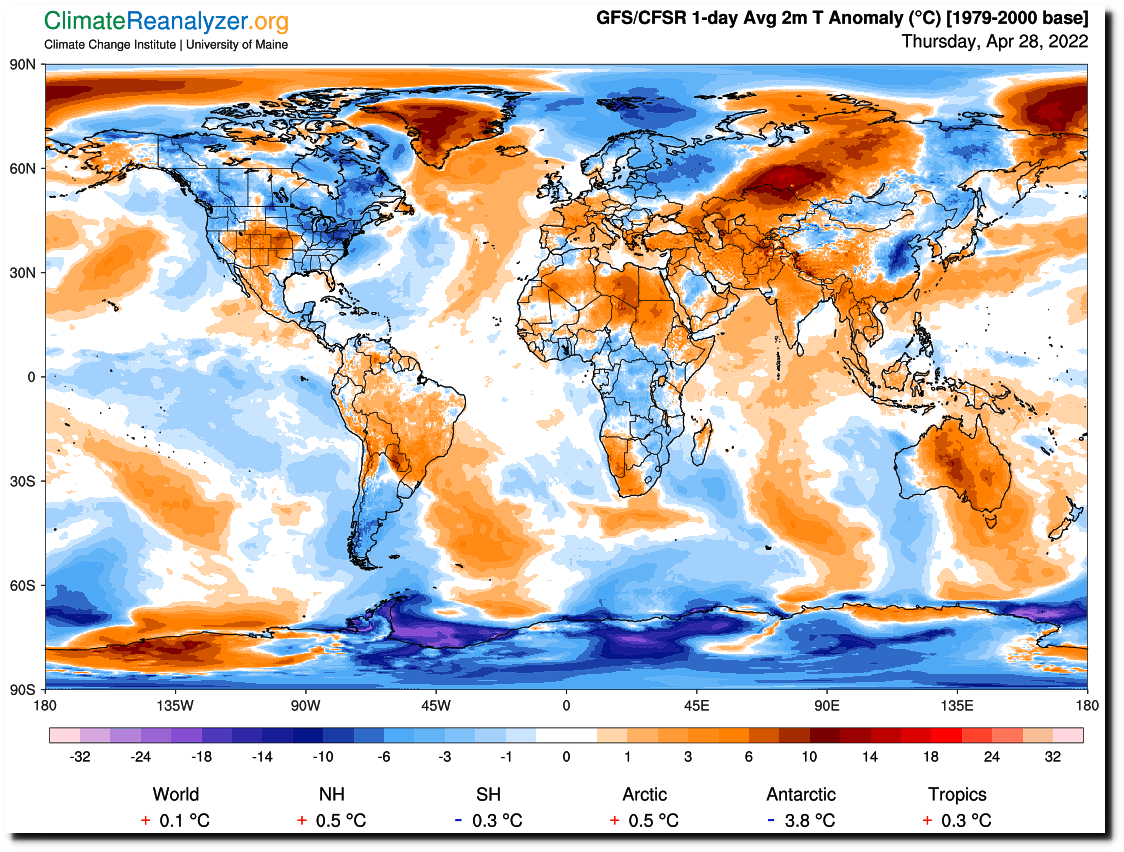So far this year, average nighttime temperatures in the US have been close to a record low, and the number of cold nights has been close to a record high.


Global temperatures are very close to the 1979-2000 mean.
Arctic sea ice is melting very slowly, and extent is just below the 1981-2010 median.



